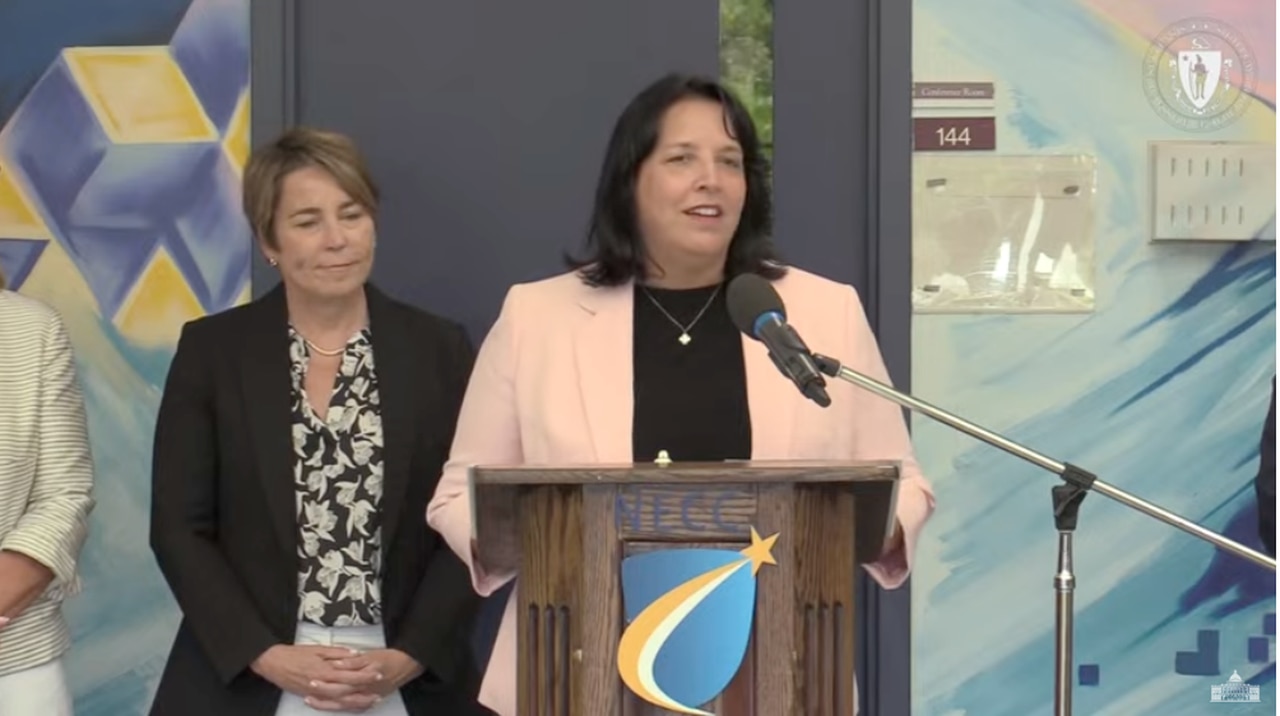(*This developing story will be updated)
In 2006, the last time Massachusetts lawmakers tried to pass in-state tuition and other benefits for undocumented students, the bill went down to defeat.
Undeterred, advocates kept up the fight. And just about two decades later, they’ve seen those efforts come to fruition, with language included in this year’s state budget that officials hailed Tuesday as a win for students, businesses, and the taxpayers.
“This is a state that was built by immigrants – it continues to be built by those who come here seeking opportunity,” Gov. Maura Healey said during a news conference on the campus of Northern Essex Community College in Lawrence.
“From now on, no matter where you were born or your status … you will be eligible to in-state tuition and state financial aid,” Healey continued. “This is a big step forward for students who have been growing up here [and] following their dreams right here in Massachusetts. It is what is fair and what is right.”
The $56 billion spending blueprint the Democratic governor signed into law earlier this month includes language authorizing in-state tuition and financial aid at the commonwealth’s public colleges and universities for undocumented students who attended high school for at least three years, and who have earned their diploma or GED.
Advocates said Tuesday that the language, known as “tuition equity,” is critical to opening the doors to opportunity to the commonwealth’s 11.9 million undocumented students, who often have seen their dreams of higher education derailed, while native-born students go on to earn college and graduate-level degrees.
“Some of our youngest students come here, they do all the work, but they aren’t documented,” said Lt. Gov. Kim Driscoll, who joined Healey, education leaders, and other advocates at Tuesday’s news conference. “Then they get the diploma, and there aren’t equities. They have to pay out-of-state tuition … Well, that’s changing today.”

Massachusetts Lt. Gov. Kim Driscoll speaks during a news conference on the campus of Northern Essex Community College in Lawrence, Mass., on Tuesday, Aug. 22, 2023 (Screen Capture).John L. Micek
Officials said Tuesday that the policy will help the state meet growing workforce needs across a variety of industries, ranging from healthcare to hospitality. Those workers will pump more money into the state’s economy, even as the public institutions help create “pipelines to opportunity.”
“We will have a front-row seat to the amazing things these young people will do when their talent is unleashed,” Senate President Karen Spilka, D-Middlesex, who shepherded the proposal through the upper chamber, said.
“This is 20 years in the making — sometimes things take a little while,” Spilka said. “But as with the budget, it was worth the wait.”
UMass System President Marty Meehan, who was in the Legislature the last time lawmakers tackled tuition equity, contrasted the state’s swift action this year against the paralysis on Capitol Hill, where lawmakers have spent decades unable to reach an accord on immigration reform.
“Immigrants built this country into what it is today. We need to take this message from Massachusetts and make sure it gets out beyond,” he said.






